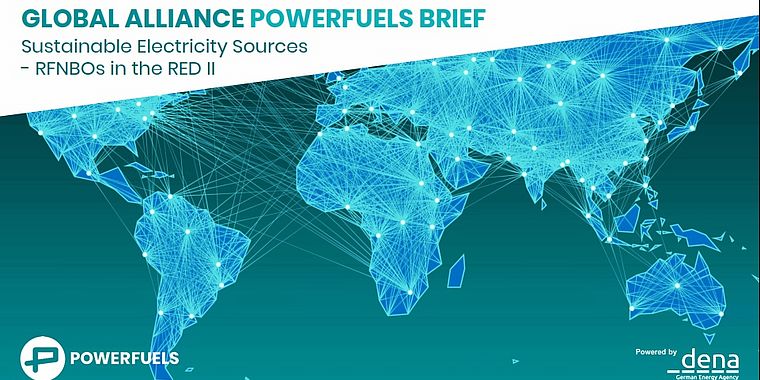The proposal aligns with the overall goal to define sustainability criteria that can safeguard the sustainability of powerfuels while being implementable globally. Further, the definition of such criteria can have a strong impact in making powerfuels a commercially viable emissions mitigation option.
The RED II is one of the first regulations to provide wide-ranging definitions and applications for powerfuels in the transport market. To claim an emissions reduction, producers of Renewable Fuels of Non-Biological Origin (RFNBOs) can purchase electricity through the grid by means of a Power Purchase Agreements (PPAs) with a renewable power plant to guarantee the sustainability of their power supply. As laid out in Article 27 of the RED II, this type of power purchase is however subject to four criteria (renewability, temporal correlation, geographical correlation and additionality), the exact definition of which is still pending. The Global Alliance Powerfuels has developed clear and implementable proposals to all those criteria, which will be elaborated in an upcoming paper.
After presenting the proposal to the audience of around 35 stakeholders from industry, NGOs and government, the Q&A session revealed some further thoughts on the broader topic. The current framework of considering electricity sources primarily as a relation between the fuel production plant and the renewable plant does not allow for consideration of the current status of the electricity system, e.g. whether or not there is excess renewables in the market. This aspect is something that future regulation may address. Other participants pointed out that decentralised electrolysers such as in hydrogen refuelling stations may necessitate an entirely different way of regulating plants. Although they could cover their electricity needs by bilateral contracts in the current regime, the peer-to-peer approach may give way to a market mechanism for renewable electricity for powerfuels in the future.


